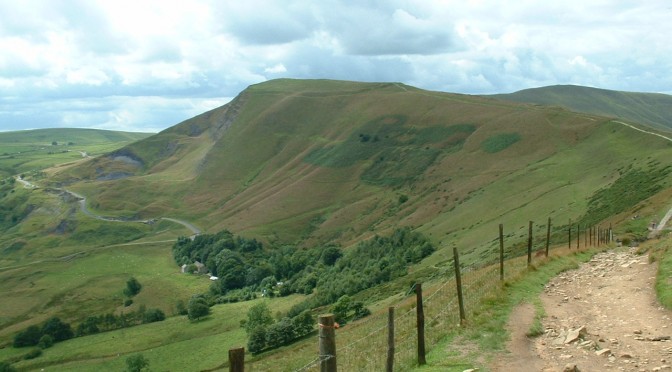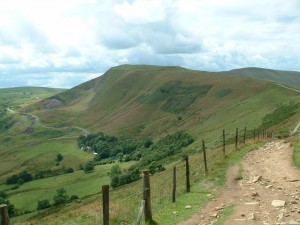This is initial thinking and it is not simple.
Firstly, one of the big shocks of my thesis was that the Reformed Spirituality is instinctively Green. It is really weird because the people who are most surprised by this are the Reformed. The idea that getting out into the natural world is good for the soul seems to be deeply embedded and has deeper roots than the idea that we are the driving spirituality of capitalism. The Green nature of Reformed may well stem from John Calvin’s idea of the natural world as the theatre of God’s Glory. Or rather it may well be that John Calvin’s own spirituality connected with the natural world which led to his doctrine of the world as “theatre of God’s Glory”. That is the connection made in Ravished by Beauty by Belden C Lane. If so we are also called not to turn it into some safe primary school image of itself but to see it in its complexity with the dark and the dangerous included. I am never quite sure whether I like God, God is far too challenging for the word “like”.
Secondly, we are inherently an active tradition. This means that we like to tackle problems and achieve things. The idea of sitting quietly in a room does not fit naturally with who we are, so the idea that we should go out into the natural world and just breathe in the beauty is not going to fit with the Reformed activism. Here walking comes to our aid. We are doing something; it might not be getting us very far, far quickly but we are doing something.
Thirdly, there is a substantial literature on spiritual aspects of walking, quite a bit of it generally secular. However, what is probably more important to the Reformed Christian is there is a strong linkage with radical ideas of society and justice. Walking is not a practice that gives us just space but it also connects to radical views on what society is. People such as Peace Pilgrim, Jarrow Hunger March, and this teenager against climate change have used walking as a means of engaging in wider aspects of society.
Fourthly, Pilgrim sites may be un-Reformed but the journeying is far more ambiguous particularly within the Separatist tradition in England. It is the tradition that both created the Pilgrim Fathers and Pilgrim’s Progress. The metaphor of the Christian life as a journey runs deep. It is also true that if Geneva is the birthplace of the Reformed tradition then it is also a tradition whose creation was dominated by refugees. There is no accident in the Reformed traditions perpetual return to the stories of Exodus and Exile. We are a travelling people and that goes for the English Reformed as much as anyone due to the Five Mile Act.
So walking in the countryside seems to be a good match with Reformed Spirituality. What do I mean by Solitary Walking? The normal term for hiking alone is Solo Hiking. What I want to get at with Solitary Walking is the deliberate embracing of the spiritual side of walking. Solitaries are another term for hermits so in this respect, I am exploring a spirituality that links with the eremitical tradition rather than the monastic. So here are the Spiritual connections I see.
Firstly the Bible has lots of people travelling and because of the history of the Bible, a lot of these journeys were on foot. So we assume that Adam and Eve left the garden on foot, a journey from, not a journey towards. Abraham is called to journey (actually it is his father Terah who starts off the journey but there is no account of the call of Terah), the Exodus, Ruth and Naomi’s journey, the Exile and Return, Jesus’ peripatetic teaching ministry in Galilee and Paul’s missionary journeys are all stories of travel. There is no lack of travel during God’s revelation. Perhaps it could be argued that God is able to reach people particular when they are moving, it is the stationary periods where things particularly go wrong.
Secondly walking is physical, repetitive and slow. As such it is at odds with much of the modern culture which focuses on the new, the virtual and the quick. We become, myself very much included, stimulation junkies. Walking allows us to lower our desired level of stimulation without us going to the cold turkey of a plain room, silence, and stillness. Let me deal with each term in order. Walking is physical, you need to be at least partly present in the moment or you end up walking into things whether lamposts, other people or dog dirt. There is, however, more as the art of walking is keeping going and that means paying attention to very practical things such as food, what you are wearing and how far it is until you next rest. It thus in a very practical way brings you into the present. It is repetitive in that involves the simple task of putting one foot in front of the other, usually several thousand times in a days hike. In this perhaps it fits with a number of other spiritual practices such as bead prayers (e.g. the rosary) and mantras (e.g. the Jesus prayer). Thirdly it is slow. I walk relatively quickly about 5km per hour on a reasonable terrain. It still takes me two hours to walk ten kilometers something a car cover in about 10 minutes! That means things change more slowly and I begin to notice things simply because I have the time to.
All of the last two paragraphs apply equally well to group walks as well as solitary ones. However, the solitary nature of a walk brings other spiritual aspects. These are silence, vulnerability, and freedom. I will take each of these as I suspect I am applying them in a bit of a different way.
Silence is rarely complete when walking, there is nearly always the crunch of your feet. However, when walking alone and not having a companion to talk with one of the things you do get is consistent big chunks of time when you are not trying to communicate with others. The only conversation you have is that which goes on in your own head. The big advantage, therefore, is you actually get to listen to yourself consistent spell of time. There is so much going on in modern life that distraction is everywhere. Although not necessarily physically noisy (though many distractions are) distractions are noisy in the sense used in signal processing. This noisiness means we loose connections with ourselves in much of modern life. The process of walking alone reduces the level of distraction so that we can hear ourselves and possibly in that gain some connection with God. However, unlike a silent retreat, it does not have the effect of a dive in off the high diving board into complete silence.
Vulnerability is not popular these days. We try and make ourselves secure against the need for other people. A single person is often seen as intrinsically vulnerable. I am dependent quite often on the kindness of strangers whether it is the offer of a cup of tea, helping me with directions or advice about local transport, the kindnesses are all welcome. In our seeking of self-sufficiency, we often cut ourselves off from receiving these kindnesses. This gives us the illusion of not needing others. What travelling as a solitary person among other people does is draw our attention back to our interdependence.
I really considered not including freedom in the list. It is perhaps not the usual item included in the spiritual practices and yet for me it is intrinsic to the process. There is on one level a very basic freedom, I have usually a number of miles to walk in a day and provided I cover those miles exactly how I do it and which paths I follow is totally within my control. It can feel quite liberating to take a path that is not that specified in the guidebook when appropriate. It reminds you of your self determination. On another level it gives a different freedom, that is the demands for time and attention most people live with most of the time. I am slightly disconnected from the continually on society that is part of modern life. If an email comes to work that needs urgent attention then it has to wait as I cannot deal with it until I have proper connections. What is more the people I meet do not know me, they are meeting me for the first time and thus have no expectations. I do not feel I am expected to be the canny statistician, dutiful daughter or loyal friend as no-one knows those personas. Personally I seem to attract these projected personas and they are not always compatible with each other.
Finally, having made a case for solitary walking as a spiritual practice largely suited to Reformed Spirituality let me point out why can only ever be part of the experience. I, myself and my shadow with the Bible are never sufficient within the Reformed tradition to be the Church. The Church must always consisted of an attempt to belong to a community. Some of this I believe goes to the heart of the Gospel where we have a God who seeks those who are separated from him. Other parts are very practical, loving people as an abstract idea is a form of wishful thinking, we can only really love people in the concrete physical reality of the present. Finally, my PhD has persuaded me that the discipline of the Church is realised within the life of the local congregational community.
That said I am still working on this and am not sure where it is leading.
[mla-start][mlabook author=”Belden C Lane” title=”Ravished by Beauty” city=”Oxford” publisher=”Oxford University Press” year=”2011″ medium=”Hardback” addt=”ISBN:9780199755080″][mla-end]



